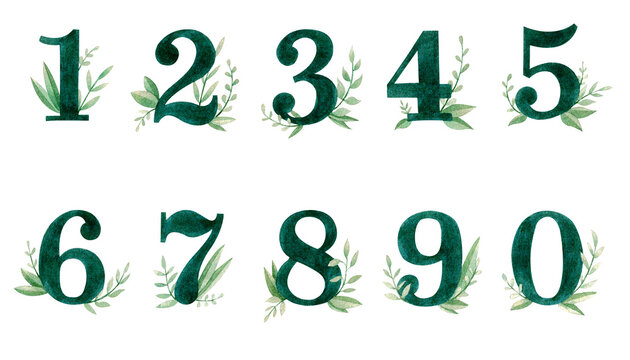Gestion de ressources 7 Wonders

Cette semaine, c'est Morgan qui vous propose un #KataOfTheWeek : Gestion de ressources 7 Wonders
Briefing du Kata : Dans ce kata, vous recevrez une séquence de cartes séparées par des virgules à l'intérieur de crochets. L'input à résoudre sera donnée sous la forme "Can you make ____?" avec la liste des ressources à obtenir, une seule par carte.
Remarque : dans le jeu 7 Wonders, chaque carte propose soit 1, soit 2, soit 4 ressources. Pour un peu plus de challenge, faites en sorte que votre programme supporte un nombre quelconque de ressources au lieu de seulement W,B,S,O, et faites en sorte que votre programme accepte des cartes de ressources arbitraires.
Voici des exemples d'inputs:
Cards [W/B/S/O, W, S/B, S]. Can you make WWSS?
Cards [W/B/S/O, S/O, W/S, W/B, W/B, W, B]. Can you make WWBSSOO?
Cards [A/B/D/E, A/B/E/F/G, A/D, A/D/E, A/D/E, B/C/D/G, B/C/E, B/C/E/F,
B/C/E/F, B/D/E, B/D/E, B/E/F, C/D/F, C/E, C/E/F/G, C/F, C/F, D/E/F/G,
D/F, E/G]. Can you make AABCCCCCCDDDEEEEFFGG?
Cards [A/C/G/K/L/O/R/S, A/D/H/I/M/Q, A/D/K/W/X, A/D/M/U/Z, A/E/J/M/T,
A/G/H/I/M/R/T/Z, A/G/M/T/U, A/H/I/J/Q, B/C/Q/U/V, B/D/F/K/M/R/W/Y,
B/F/P/T/U/W/Y, B/G/K/M/S/T/X/Y, C/E/F/I/K/N/O, D/E/G/J/M/Q/Z, D/G/I/R/Z,
D/H/I/T/U, E/G/H/J/M/Q, E/G/H/J/Q/R/T/U, E/G/J/M/Z, E/H/I/Q/T/U/Z,
E/J/O/S/V/X, F/G/H/N/P/V, F/G/N/P/R/S/Z, F/I/M/Q/R/U/Z, F/L/M/P/S/V/W/Y,
G/H/J/M/Q]. Can you make ABCDEFGHIJKLMNOPQRSTUVWXYZ?
Pour chacun de ces inputs, votre programme doit être capable de dire si il est possible de générer les ressources désirées et si oui, comment.
Pour le dernier exemple, cela risque d'être plus difficile avec un algorithme de type bruteforce. Essayez d'obtenir des résultats rapides, même pour des complexités élévées !
Saurez-vous résoudre le problème ?
Bon courage !
Et voici une solution proposée par l'auteur :
Ce kata vient à la base de Reddit et je vous propose ici la solution en Java de u/i3aizey parce que je l'ai trouvé intéressante. Elle se base sur l'idée de l'algorithme des colonies de fourmis. Pour cela, on représente le problème par un ensemble de "nœud" (les cartes) et chacun de ces nœuds vont pouvoir prendre une valeur de ressources différente. En créant des générations de "fourmis" qui vont sélectionner aléatoirement des ressources, les fourmis qui seront les plus proches de la bonne solution vont laisser des "traces" pour attirer les futures fourmis. Cela est modélisé par une augmentation des probabilités de sélectionner certaines ressources. Ainsi, de génération en génération on va s'approcher de plus en plus de la solution si elle existe, et tout cela en se basant sur de l'aléatoire.
Cet algorithme est bien plus rapide que le bruteforce même quand la complexité devient élevée.
Voici le code:
public class SevenWonders {
static final String[] problems = new String[]{
"Cards [W/B/S/O, W, S/B, S]. Can you make WWSS?",
"Cards [W/B/S/O, S/O, W/S, W/B, W/B, W, B]. Can you make WWBSSOO?",
"Cards [A/B/D/E, A/B/E/F/G, A/D, A/D/E, A/D/E, B/C/D/G, B/C/E, B/C/E/F, B/C/E/F, B/D/E, B/D/E, B/E/F, C/D/F, C/E, C/E/F/G, C/F, C/F, D/E/F/G, D/F, E/G]. Can you make AABCCCCCCDDDEEEEFFGG?",
"Cards [A/C/G/K/L/O/R/S, A/D/H/I/M/Q, A/D/K/W/X, A/D/M/U/Z, A/E/J/M/T, A/G/H/I/M/R/T/Z, A/G/M/T/U, A/H/I/J/Q, B/C/Q/U/V, B/D/F/K/M/R/W/Y, B/F/P/T/U/W/Y, B/G/K/M/S/T/X/Y, C/E/F/I/K/N/O, D/E/G/J/M/Q/Z, D/G/I/R/Z, D/H/I/T/U, E/G/H/J/M/Q, E/G/H/J/Q/R/T/U, E/G/J/M/Z, E/H/I/Q/T/U/Z, E/J/O/S/V/X, F/G/H/N/P/V, F/G/N/P/R/S/Z, F/I/M/Q/R/U/Z, F/L/M/P/S/V/W/Y, G/H/J/M/Q]. Can you make ABCDEFGHIJKLMNOPQRSTUVWXYZ?"
};
public static void main(String... args) {
Time.init();
for(String problem : problems)
Time.takeTime(problem.split("Can you make ")[1].replace("?", ""), () ->
Note.writenl(solve(problem) ? "" : "N/A"));
Time.write();
}
static boolean solve(String input) {
String[] parts = input.replaceAll("^Cards \\[(.*)]\\. Can you make (.*)\\?$", "$1-$2").split("-");
return solve(parts[0].split(", "), parts[1]);
}
private static boolean solve(String[] optionInput, String goalInput) {
Node[] options = new Node[optionInput.length];
for(int i = 0; i < options.length; i++)
options[i] = new Node(optionInput[i]);
int[] needed = new int[255];
for(char c : goalInput.toCharArray())
needed[c]++;
int[] goalChars = goalInput.chars().boxed()
.collect(Collectors.toSet()).stream()
.mapToInt(i -> i).toArray();
IntList best = new IntList(options.length);
IntList genBest = new IntList(options.length);
IntList curr = new IntList(options.length);
int bestScore = 9999;
for(int generation = 0; generation < 100; generation++) {
int genBestScore = 999;
genBest.reset();
for(int pop = 0; pop < 100; pop++) {
curr.reset();
for (Node option : options)
curr.add(option.getRandomOption());
int[] currChars = new int[255];
for(int i = 0; i < curr.size; i++)
currChars[options[i].cards[curr.array[i]]]++;
int currScore = 0;
for(int goal : goalChars)
currScore += Math.max(0, needed[goal] - currChars[goal]);
if(currScore < genBestScore) {
genBest.copyOver(curr);
genBestScore = currScore;
}
}
for(int i = 0; i < options.length; i++)
options[i].promoteOption(genBest.array[i]);
if(genBestScore < bestScore) {
best.copyOver(genBest);
bestScore = genBestScore;
if(bestScore == 0) break;
}
}
if(bestScore == 0){
Note.write("Solution: ");
for(int i = 0; i < options.length; i++)
Note.write((char) options[i].cards[best.array[i]]);
}
return bestScore == 0;
}
}
class IntList {
final int[] array;
int size = 0;
IntList(int size){ this.array = new int[size]; }
void reset(){ this.size = 0; }
void add(int value){ array[size++] = value; }
void copyOver(IntList other) {
size = other.size;
System.arraycopy(other.array, 0, array, 0, size);
}
}
class Node {
int[] cards;
double[] takeChance;
Node(String rawOptions) {
cards = Arrays.stream(rawOptions.split("/")).mapToInt(i -> i.charAt(0)).toArray();
takeChance = new double[cards.length];
Arrays.fill(takeChance, 1.0 / cards.length);
}
int getRandomOption() {
double pick = Math.random();
for (int i = 0; i < cards.length; i++) {
pick -= takeChance[i];
if (pick <= 0) return i;
}
return 0;
}
void promoteOption(int index) {
double adding = 0;
for (int i = 0; i < takeChance.length; i++) {
double taking = takeChance[i] * 0.05;
adding += taking;
takeChance[i] -= taking;
}
takeChance[index] += adding;
}
}
Votre équipe TakiVeille




